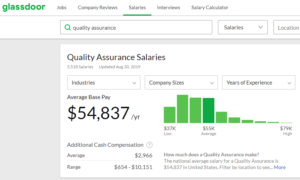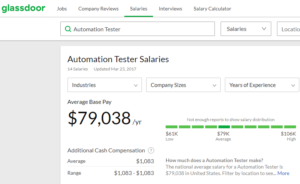 If you’re in the technology industry, or if you want to enter, you (should) know that we are consistently having to improve and diversify our skill sets.
If you’re in the technology industry, or if you want to enter, you (should) know that we are consistently having to improve and diversify our skill sets.
Our employer’s are consistently asking more from us. We also know that traditional Quality Assurance (manual testers) are a thing of the past.
To help with this transition, this article outlines the several key considerations to accelerate your career – Manual to Automation Tester:
- Salary Compensation (Traditional QA vs Automation Tester)
- Primary Skills
- How-To Transition/Transform
Salary Compensation (Traditional QA vs Automation Tester)
Primary Skills
As a Automation Test engineer you need to have the fundamentals of a programming language (Java, C#, python, php, etc) and understand fundamental patterns of Automation Testing.
Not to mention the following technologies:
- TestNG,
- Maven,
- ANT,
- Jenkins,
- Cucumber,
- HTML reports,
- Selenium Webdriver,
- Git
How-To Transition/Transform
1st – invest in yourself. Upgrade your skill set and technical skills. Find a local boot camp, lectures or free sessions.
You will learn how to design page objects, data-driven and hybrid automation frameworks from scratch while working on real-time challenges using multiple examples.
Gain knowledge in TestNG, Maven, ANT, Jenkins, Cucumber, HTML reports, Excel API and grid parallel testing. Includes additional training to understand Mobile application testing, database testing and performance testing.
Add value to your team if already working on an application development project or quadruple the value of your skill set if looking to join a team.
